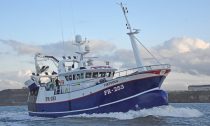
Marine conservation areas have failed to protect wildlife from the fishing industry, according to a study by Scottish Government scientists.
Researchers from the government’s marine laboratory in Aberdeen have found that less than one per cent of trawling and dredging around Scotland’s coast has been covered by controls in marine protected areas (MPAs). This is “unlikely to significantly reduce the fishing pressure” on rare seabed plants and animals, they say. The way MPA networks have been claimed to provide protection is “misleading”, they warn.
Environmental groups say the new study confirms fears that MPAs have been ineffective, and are calling for more restrictions on fishing. Industry bodies, however, criticise the study, saying the MPAs are not meant to be a way of managing fishing.
Marine protected areas were first introduced in 2014. There are now 217 for nature conservation covering 22 per cent of Scotland’s seas. According to the Scottish Government, they are meant “to ensure protection of some of the most vulnerable species and habitats.”
Four research scientists from Marine Scotland Science led by its head of conservation, Dr Peter Wright, have published a study in the peer-reviewed scientific journal, Biological Conservation. Their work was funded by the Scottish Government.
The study was entitled “Are MPAs effective in removing fishing pressure from benthic species and habitats?” It pointed out that dragging trawling or dredging gear along the seabed put the “most widespread anthropogenic pressure” on marine wildlife.
MPAs were designed to protect endangered shellfish such as the fan mussel and ocean quahog found in soft seabed sediments, the study said. “Removing fishing usually leads to positive biological effects,” it argued.
The study compared the extent of controls in 41 MPAs with the levels of trawling and dredging in previous years. “MPAs and MPA management measures were found to overlap with less than one per cent of the historic mobile bottom fishing activity in the study region,” it concluded.
This indicated that “current measures within the network are unlikely to significantly reduce the fishing pressure to which benthic habitats and species are exposed,” it said.
The study pointed out that the effectiveness of MPA networks was often assessed by reference to their total area. “Reliance on MPA area estimates in reporting progress can be misleading and, if used injudiciously by marine managers, is likely to erode stakeholder trust in the process,” it cautioned.
“Inclusion in an MPA does not necessarily mean that all damaging activities are removed. Fishing activity has only been removed from a fraction of the MPA network in the study region.”
The study acknowledged that MPA management measures in areas where there had previously been little or no fishing could protect pristine habitats from future activity.
“However, if no pressure is removed such a management approach cannot be expected to deliver a demonstrable improvement in the habitats and species as there is no conservation action,” it said.
The study suggested that imposing restrictions could be “guided by a reluctance to displace or reduce fishing intensity”. It warned that this may provide “inadequate protection” for wildlife and leave marine managers with “difficult decisions”.
Marine habitats ‘being lost’
A new coalition of 51 community, environmental, fishing and businesses groups called Our Seas described the new study as worrying. “MPAs do not do what they say on the tin,” said a spokesperson for the coalition.
“To say 20 per cent of coastal waters are protected by MPAs is misleading, because in reality just a small proportion of our seabed is off limits to bottom-trawling and dredging. These are often nooks and crannies that are naturally inaccessible to damaging fishing methods.”
Our Seas urged “broader, strategic measures to recover our coastal waters, rather than piecemeal protection.” It called on Scottish ministers to “consider the reinstatement of a modern, inshore limit and make an urgent plan for a just transition to sustainable fisheries.”
The campaign group, Open Seas, warned that damage to Scotland’s seabed must not continue. “The Scottish Government promised a review on trawling and dredging back in 2017, but there has been no real progress,” said the group’s Nick Underdown.
“While ministers drag their heels, we continue to lose what’s left of our marine habitats,” he added.
Open Seas has video footage of a maerl bed allegedly damaged by scallop dredging north of Brodick Bay off the island of Arran. Maerl is a brittle purple-pink seaweed that carpets the seabed and helps form western Scotland’s famous white beaches.
The damage was “just the latest illustration of ministers’ failing in their duty to protect the environment,” argued Underdown.
“We routinely observe examples of seabed being torn up, destroying slow-growing habitats and suppressing any chance of recovery. Ministers appear oblivious to this ongoing damage to fish nursery grounds.”
He added: “Less than 40 years ago there was a ban on inshore bottom-trawling. It’s time the Scottish Government stopped dismissing the obvious and now considered bringing back an inshore limit on trawlers and dredgers, and incentivised lower impact, sustainable fishing, before it’s too late.”
Open Seas highlighted other marine protected areas where, it claimed, seabed wildlife was at risk from trawling and dredging. They included the Sound of Arisaig, an area between Loch Sunart and the Sound of Jura and an area in Shetland near the island of Mousa.
The Ferret published video footage in July 2019 showing damage from illegal scallop dredging off Jura. In February 2019 we reported suspicious scallop dredging activity in the Sound of Mull.
The new study was welcomed by Dr David Bailey, a senior lecturer in marine ecology at the University of Glasgow. “I know the scientists who did this work and have complete confidence in them,” he told The Ferret.
“This government science confirms what many feared – that the MPA network only protects surviving fragments of vulnerable habitats but doesn’t do anything to restore lost biodiversity.”
The Marine Conservation Society said the study “starkly illustrates the need to urgently raise our ambition” to protect the seas. “All four UK administrations have collectively failed to ensure our seas are in good environmental status,” argued the society’s head in Scotland, Calum Duncan.
“It is business-as-usual that is to blame. We welcome the measures that have been put in place to date but urgently need to go further, including extending protections from damaging fishing gear across the entire area of MPAs.”
Marine protected areas ‘not a tool to manage fishing’
The Scottish Whitefish Producer’s Association (SWFPA), which represents the trawling industry, stressed that it had been supportive of MPAs. But they had not been established as a “fisheries management tool”, it said.
The association’s policy officer, Kenny Coull, expressed surprise that the study only covered 41 of Scotland 217 nature conservation MPAs. He pointed out that management measures had yet to be developed for most areas.
“It is also of concern to SWFPA that this report will, almost certainly, be used by groups opposed to commercial fishing activity to misrepresent the stated aims and objectives of the Scottish MPA network before they are appropriately evaluated,” Coull said.
“We believe it would be more appropriate to carry out such studies when the Scottish Government hope to be able to report more authoritatively on MPA status in 2024.”
Coull disputed that MPA restrictions were guided by a reluctance to reduce fishing. “SWFPA does not believe that the Scottish Government has set out to mislead stakeholders by ignoring their stated objectives in favour of protecting commercial fishing interests,” he argued.
“We remind that the aim of the nature conservation MPAs is to protect specific features and species and is not a tool to manage fishing activity.”
He was backed by the Scottish Fishermen’s Federation. “We are surprised at the criteria used in this study to measure the effectiveness of designation and management of MPAs, as the MPAs network’s objective is not to reduce or displace sustainable fishing,” said the federation chief executive, Elspeth Macdonald.
“To support conservation objectives, the operating principle is to maximise the protection of identified features and species while striking a balance between the different activities, not to eliminate sustainable fishing.”
The Scottish Government pointed out that fisheries management measures in the MPAs covered by the new study were based on statutory advice from Scottish Natural Heritage after “extensive” public consultation.
“The paper highlights that targeting the most pristine environments for management measures can lead to the protection of the largest area of seabed for a given reduction, or exclusion, of fishing effort, protecting them from future damage,” said a government spokesperson.
“This helps strike an appropriate balance between environmental protection and continued sustainable use by the fishing sector, while achieving the conservation objectives.”










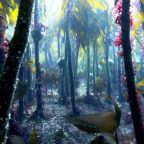
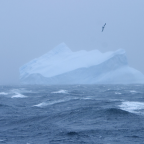
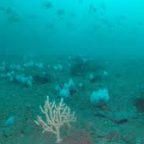
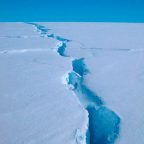

Social Profiles